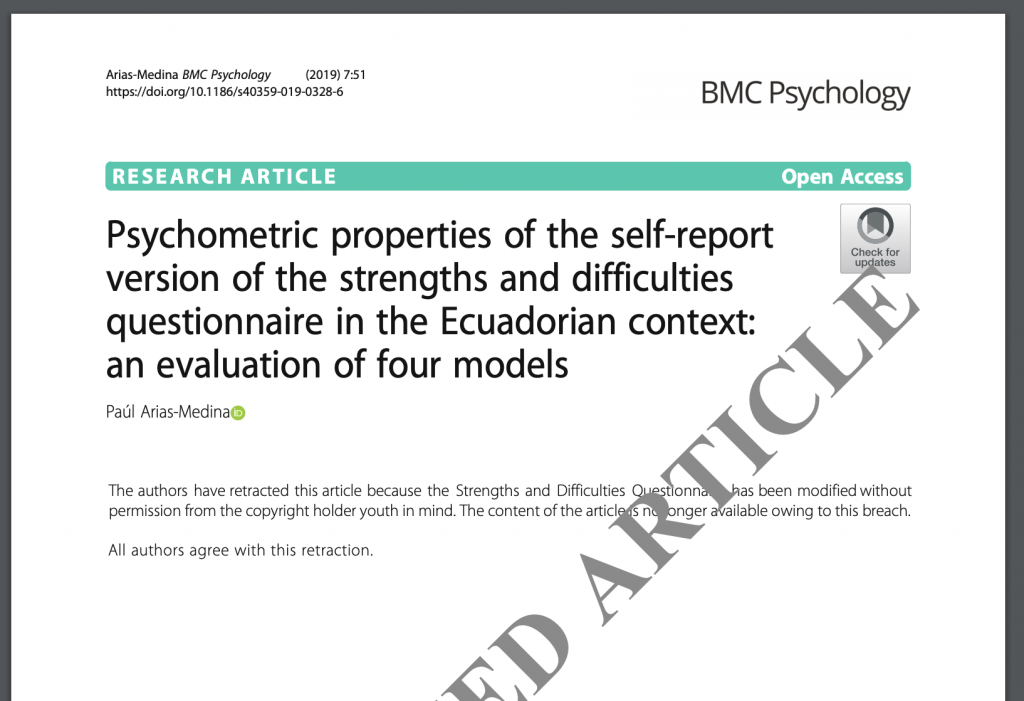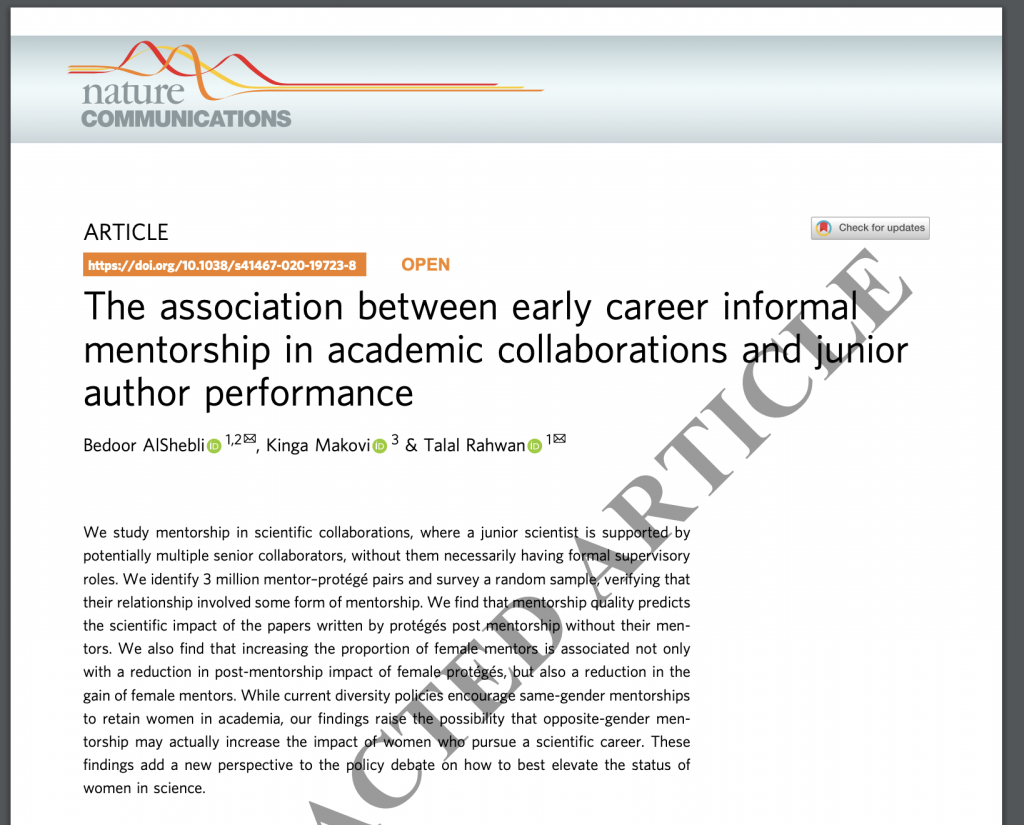
A researcher in Ecuador has lost a 2019 paper on the application of a widely-used psychological research instrument after the owner of the tool flexed their copyright muscle.
The episode — like another one, recently — echoes the case of Donald Morisky, a UCLA researcher who developed an instrument for assessing medication adherence — and then began charging other scientists small fortunes (and, in some cases, large ones) for use of the tool, or forcing retractions when they failed to comply. (For more on the Morisky case, see our 2017 piece in Science and this recent warning by journal editors.)
Written by Paúl Arias-Medina, of the University of Cuenca, the article, “Psychometric properties of the self-report version of the strengths and difficulties questionnaire in the Ecuadorian context: an evaluation of four models,” appeared in BMC Psychology.
Per the paper’s abstract:
Continue reading Psychology paper retracted after creators of tool allege “serious breach of copyright”






